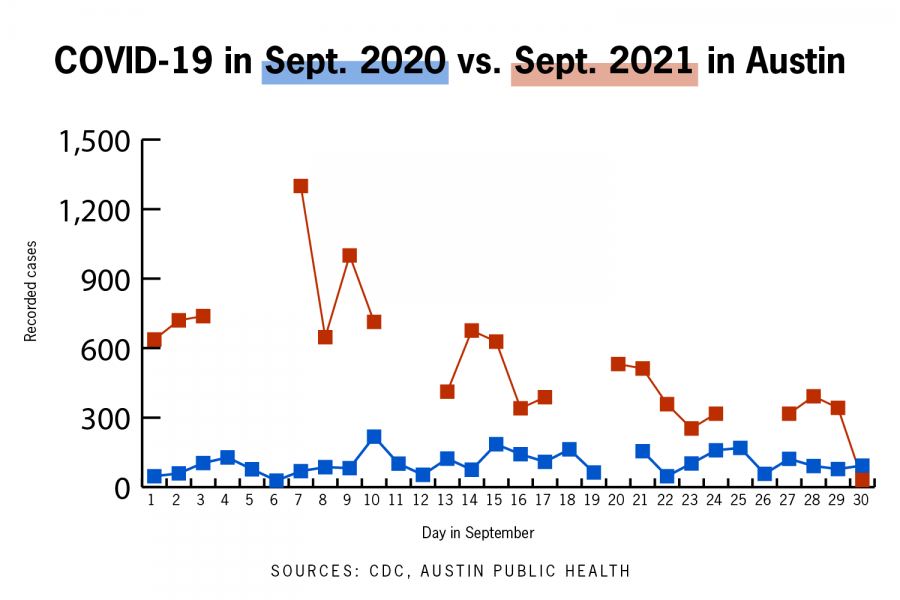UT researchers identify promising antibody resistant against COVID-19 variants
December 17, 2021
Editor’s Note: This article first appeared in the October 19 flipbook.
UT researchers identified a COVID-19 antibody that can prevent viral infection against COVID-19 and its current variants.
UT researchers, in collaboration with Vanderbilt University, published their findings last month identifying an antibody they can potentially use to create an antibody therapeutic treatment, which could prevent COVID-19 infection or stop symptoms from worsening. However, it is currently unclear whether the antibody can prevent infection in future variants, said Nicole Johnson, co-author of the paper.
“Generally, antibody therapeutics are important for prophylactic or therapeutic use because it gives your immune system a head start,” said Johnson, a biochemistry doctoral student. “So if you’re able to treat with some antibodies that can neutralize infection, you’re going to get a less severe infection while your own body is ramping up its antibody response to fight the virus.”
Johnson said the antibody has a small binding footprint that binds to the virus cell to work against current variants. She said the team conducted multiple tests to see if COVID-19 would infect a cell after being exposed to the antibody and tested how well the antibody binds to the virus.
“We have really low levels of antibodies flowing in our body at any given time,” Johnson said. “When you are exposed to some kind of pathogen, or in the case of the vaccine just the spike protein antigen, your body will recognize that some subset of those low-level antibodies that you already have have bound successfully to the pathogen and then ramps up those antibodies.”
Kevin Kramer, a Vanderbilt University alumnus and co-author of the paper, said the antibody can be used for antibody therapeutic treatment such as Regeneron. Patients can receive this treatment before or after infection. He said immunocompromised patients can take the treatment as a way to fight against COVID-19 if patients do not respond well to vaccines.
“(The treatment) is given to vulnerable at-risk populations, for example, that may not be able to respond well to a vaccine given they are immunocompromised or they are taking medicine that compromises their immune system,” Kramer said.
Johnson said they do not expect the antibody to easily mutate and will be able to disarm current COVID-19 variants.
“I’m really proud of this work,” Johnson said. “It’s really cool that we have this method that can identify these unique antibodies that have potential to add to the toolbox that we have.”
Kramer said although they found the antibody in only one patient, they can remake it for antibody therapeutic use because they know its genetic sequence. He said discovering this antibody could potentially help treat many patients, especially those who are unable to receive the vaccine or do not gain the same antibodies from the vaccine.
“I went into grad school with an interest in biology and human health and disease, and I honestly never imagined I’d be working on a project that has such acute relevance to a problem that’s affecting so many people,” Kramer said. “I’m a scientist at heart, so I love how things work and how biology works.”











